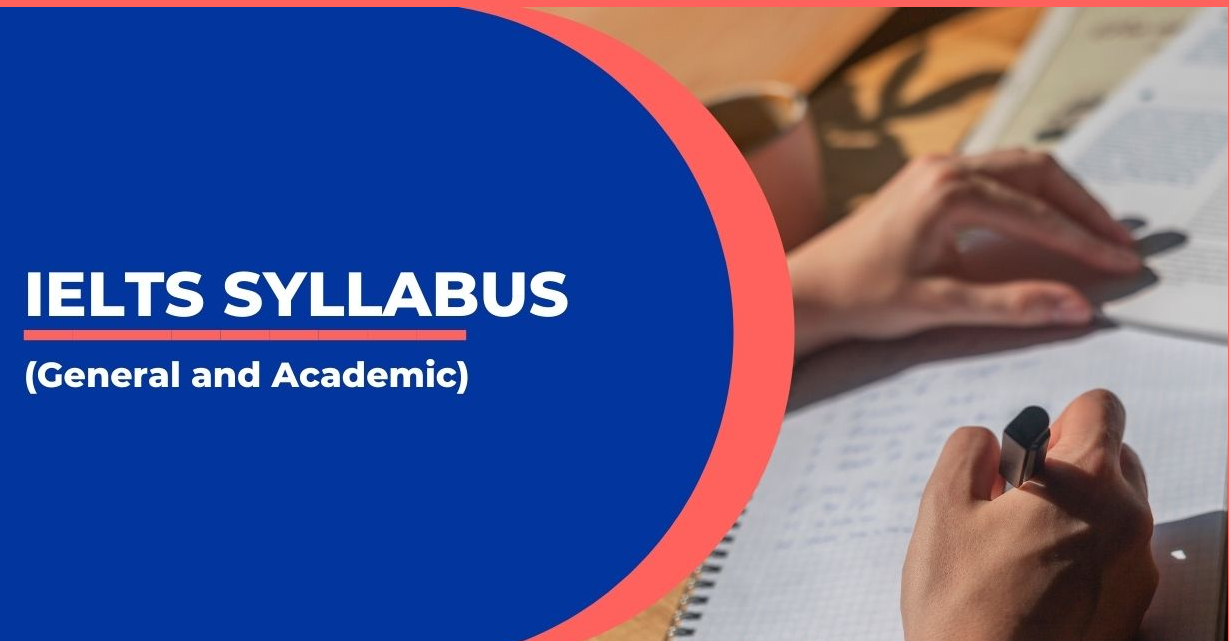
What is IELTS?
IELTS stands for the International English Language Testing System. It is the world’s most popular English language proficiency test for non-native English speakers. IELTS is widely recognized and accepted by educational institutions, employers, and immigration authorities in many countries.

Formats
The International English Language Testing System (IELTS) is available in two main formats:
1. IELTS Academic: This version is primarily designed for individuals who wish to study at an undergraduate or postgraduate level in an English-speaking country. It assesses the English language proficiency needed for academic purposes. Universities, colleges, and professional organizations often require IELTS Academic scores for admission or professional registration.
2. IELTS General Training: This format is suitable for individuals planning to undertake non-academic training or work experience in an English-speaking country. It assesses English language proficiency in a practical, everyday context. It is commonly required for immigration purposes, visa applications, and for individuals seeking employment opportunities in countries where English is the main language of communication.

Syllabus
IELTS consist of the four sections:
Listening: This section evaluates your ability to understand spoken English. You listen to a range of recordings and answer questions related to the content.
Reading: This section tests your reading comprehension skills. You are presented with a variety of texts and required to answer questions based on the information provided.
Writing: In this section, you need to demonstrate your writing skills. There are two tasks: Task 1 requires you to interpret and describe information presented in a graph, table, or diagram; Task 2 involves writing an essay on a given topic.
Speaking: The speaking section assesses your ability to communicate verbally in English. It includes a face-to-face interview with an examiner and consists of various tasks, such as introducing yourself, discussing a topic, expressing opinions, and engaging in a conversation.
The IELTS test is scored on a nine-band scale, with each band representing a level of English language proficiency. The scores are used by institutions and organizations to determine an individual’s ability to communicate effectively in English.
It’s important to note that the specific requirements and score bands accepted may vary depending on the institution, organization, or country you want to APPLY.

IELTS Time Mastery: Optimize Your Performance in Each Module!
Are you wondering how to manage your time effectively in each module of the IELTS exam? We are here to help! At Keemaya Language Preparation Centre, we specialize in providing valuable insights and strategies to optimize your time management skills for each IELTS module. With our guidance, you can confidently tackle each section of the exam within the allocated time, increasing your chances of achieving your desired score.
Reading Module:
- Time Allocation: The Reading module consists of three sections, and you have a total of 60 minutes to complete them. It is essential to manage your time efficiently to answer all the questions.
- Skimming and Scanning: Learn effective skimming and scanning techniques to quickly grasp the main ideas, locate specific information, and identify keywords in the passages.
- Practice Time-Driven Reading: Engage in timed reading practice sessions to improve your reading speed and comprehension while adhering to time limits.
- Answering Techniques: Master strategies such as reading the questions before reading the passage, underlining key information, and utilizing contextual clues to save time while answering accurately.
Writing Module:
- Time Allocation: The Writing module comprises two tasks: Task 1 (150 words) and Task 2 (250 words). You have a total of 60 minutes for both tasks, so managing your time effectively is crucial.
- Planning and Outlining: Dedicate a few minutes to planning and organizing your ideas for each task. This step will help you structure your response and save time during the writing process.
- Time Division: Aim to spend approximately 20 minutes on Task 1 and 40 minutes on Task 2. Be mindful of the time while writing, ensuring that you allocate sufficient time for editing and proofreading at the end.
Listening Module:
- Time Allocation: The Listening module consists of four sections, and you have 30 minutes to complete them. It is essential to listen attentively and manage your time wisely to answer all the questions accurately.
- Familiarize with Audio Features: Get accustomed to the audio features, such as different accents, tone, and pace of speakers. This familiarity will help you follow the recordings more efficiently.
- Note-Taking Techniques: Develop effective note-taking techniques to capture essential information while listening, such as abbreviations, symbols, and keywords. This will aid in answering the questions accurately and quickly.
- Predictive Listening: Practice predictive listening by anticipating possible answers based on the context, speaker’s tone, and keywords mentioned in the audio.
Speaking Module:
- Time Allocation: The Speaking module consists of three parts, and the total speaking time ranges from 11 to 14 minutes. Managing your time effectively in each part is crucial to fully showcase your speaking abilities.
- Part 1: The introductory part usually lasts around 4-5 minutes. Keep your responses concise and to the point while providing enough information to demonstrate your English proficiency.
- Part 2: In this part, you will be given a cue card and have 1-2 minutes to prepare your response. Utilize the preparation time wisely to brainstorm ideas, create a structure, and jot down key points.
- Part 3: Engage in an in-depth discussion with the examiner. Be mindful of the time, share your thoughts clearly, and support your opinions with relevant examples.
At Keemaya Language Preparation Centre, we provide expert guidance and practice resources to help you manage your time effectively in each module of the IELTS exam. Enroll in our courses today to gain valuable insights and strategies that will optimize your time management skills and increase your chances of success!
Purpose of the IELTS test
The purpose of the IELTS test is to assess an individual’s ability to understand and use the English language in academic, professional, and everyday contexts. It measures the four key language skills: listening, reading, writing, and speaking.
There are two main types of IELTS tests:
- IELTS Academic: This version is typically taken by individuals who wish to study at undergraduate or postgraduate levels in an English-speaking country. It assesses the English language skills needed for academic purposes, such as listening to lectures, reading academic texts, writing essays, and participating in academic discussions.
- IELTS General Training: This version is usually taken by individuals who plan to migrate to an English-speaking country, seek work experience, or undergo non-academic training programs. It assesses practical English language skills needed for everyday life, work, and social interactions.
Both versions of the IELTS test consist of four sections:
- Listening: This section evaluates your ability to understand spoken English through a range of audio recordings. You will answer questions based on the information you hear.
- Reading: This section assesses your reading comprehension skills. You will be given a set of passages and will need to answer questions to demonstrate your understanding of the text.
- Writing: This section evaluates your writing skills. You will be required to complete writing tasks, such as describing visual information, presenting arguments, or writing an essay.
- Speaking: This section assesses your spoken English skills through a face-to-face interview with a certified examiner. The interview will include a range of questions and tasks to evaluate your ability to communicate effectively.
IELTS uses a 9-band scoring system, with 9 being the highest score indicating expert English language proficiency, and 1 being the lowest indicating non-user proficiency.
It’s important to note that IELTS scores are valid for two years from the test date, and test takers can choose from numerous test centers worldwide to take the exam.
Preparing for the IELTS test can significantly enhance your chances of achieving a high score. Various resources, including study materials, practice tests, and preparation courses, are available to help you familiarize yourself with the test format and improve your English language skills.
If you are planning to study, work, or migrate to an English-speaking country, taking the IELTS test is an important step towards achieving your goals.


Recent Comments